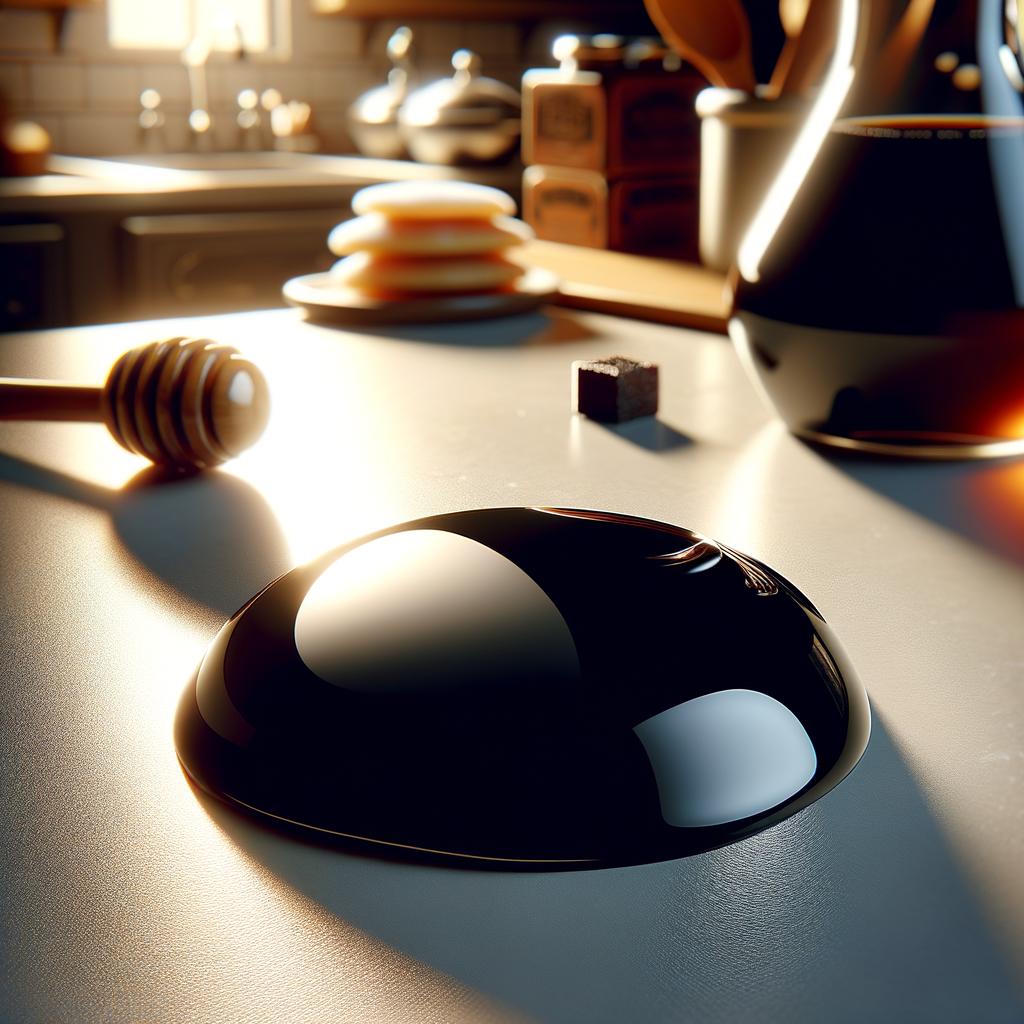Dark Syrup

Description
Dark syrup, also known as dark molasses or black treacle, is a viscous, sweet, and richly flavored ingredient that plays a quintessential role in many culinary traditions. Its luscious, velvety texture, and deep, almost black hue is reminiscent of a moonless night. The flavor profile is complex, combining the sweetness of sugar with an almost bitter, smoky undertone. This unique combination sets it apart from similar ingredients like honey or light syrup, giving it a distinctive character that can transform any dish.
Primary Uses
Dark syrup is a versatile ingredient that is used in a wide variety of dishes across different cuisines. It is a staple in baking, lending its rich, robust flavor to gingerbread cookies, traditional British parkin, and American-style pecan pies. It's also used to sweeten and enhance the flavor of savory dishes like Boston baked beans and pulled pork. Its non-culinary uses include traditional medicine, where it's often used as a base for herbal tonics, and in the brewing industry where it's used to add color and flavor to certain types of beer.
History
The history of dark syrup is as rich and complex as its flavor. It dates back to the sugar cane plantations of the 17th century, where it was discovered as a byproduct of sugar production. Over time, it became a beloved ingredient in many traditional recipes, from the hearty rye breads of Scandinavia to the sweet, sticky puddings of England. There's a romantic notion in the thought of this humble byproduct traveling the world, crossing oceans and continents, and finding its way into the hearts and kitchens of people everywhere. One popular folklore associated with dark syrup is the belief that it brings good luck when used in the first bake of the New Year.
Nutritional Information
Despite its sweet nature, dark syrup is surprisingly nutritious. It's a good source of several essential minerals, including calcium, magnesium, potassium, and iron. It also contains a small amount of selenium, a powerful antioxidant. When compared to white sugar, dark syrup has a lower glycemic index, meaning it has less of an impact on blood sugar levels. However, like all sweeteners, it should be consumed in moderation due to its high calorie content. Its unique combination of sweetness and nutrition makes it a beloved ingredient in the world of food.

